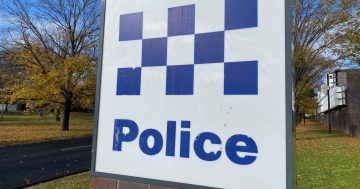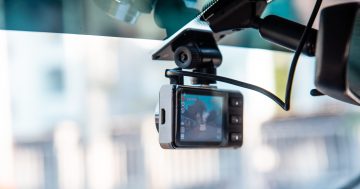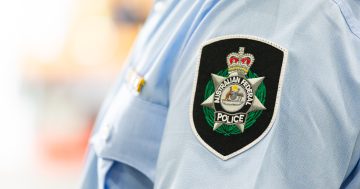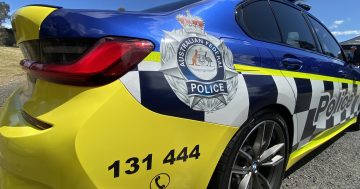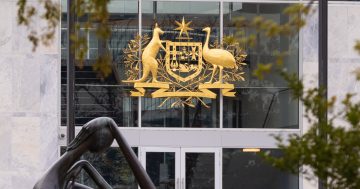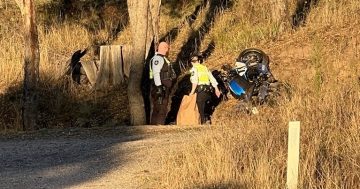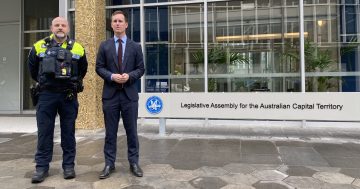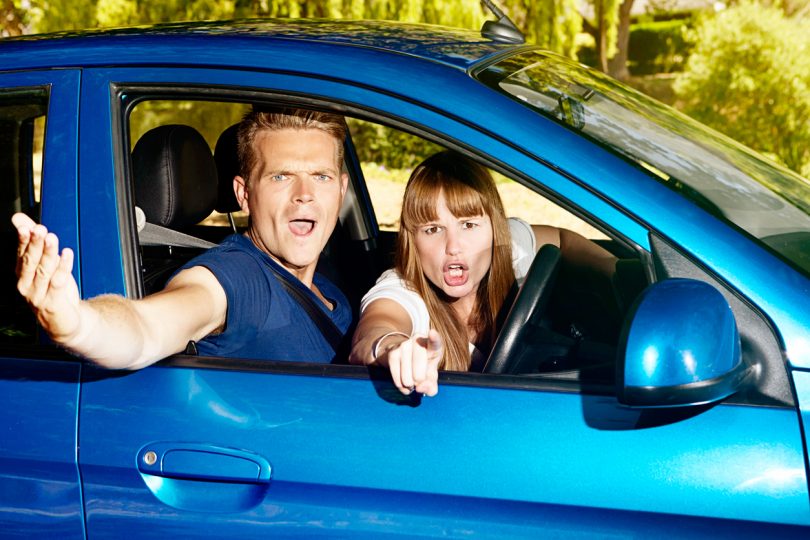
There have been a string of road rage incidents in Canberra in the last few months – with three in the past month alone.
A man forcing a car to stop in Hughes and then striking it, a female driver assaulted after a collision in Conder, an assault while two cars are stopped at the traffic lights in Braddon, the road rage version of dodgem cars in Belconnen, a station wagon ramming a car in Mitchell with the driver then striking the car with a machete… these are among the string of road rage incidents which have taken place in Canberra in the last few years.
The past month alone saw a black Toyota Kluger deliberately veering into a smaller car in Kambah and two drivers abusing each other after a crash on Ginninderra Drive, while in Queanbeyan a 70-year-old motorist was struck in the back of the head with a garden shovel.
Then there is the tailgating, the rude gestures, the honking and the verbal abuse which never makes the police radar.
Despite the growing use of dash-cams and the likelihood that road rage offences will be ‘caught on camera’, the road rage in Canberra and surrounds shows no signs of lessening.
It is difficult to determine whether road rage is increasing in Canberra as ACT Policing does not keep any separate statistics on the issue because it encompasses a broad range of offences from traffic offences to property damage to assault.
However, the regularity of news reports on road rage attacks and incidents means it continues to be a major issue on our roads.
Motorists engaging in road rage need to be held accountable
ACT Officer-in-charge of Traffic Operations, Station Sergeant Marcus Boorman is emphatic that people who engage in road rage don’t belong on Canberra’s roads and should be held accountable.
“The term road rage is very broad. If people engage in conduct that is dangerous, not only do they commit some significant and serious traffic offences, they will be subjected to criminal offences,” Station Sergeant Boorman said in an interview with The RiotACT.
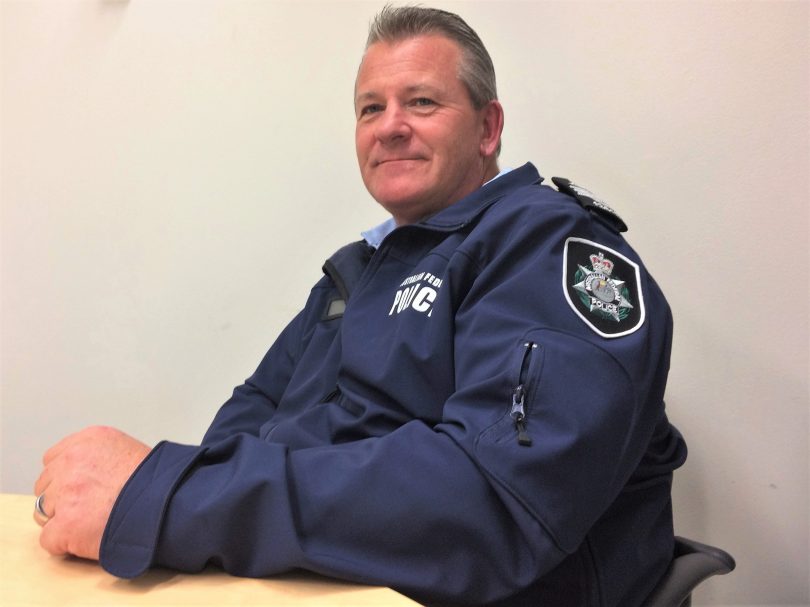
ACT Officer-in-charge of Traffic Operations, Station Sergeant Marcus Boorman is emphatic that people who engage in road rage don’t belong on Canberra’s roads. Photo by Glynis Quinlan.
He said he believes many people don’t report road rage incidents because they think there’s nothing that can be done but that isn’t the case.
“What I would do is encourage people that if they’re ever involved in any sort of incident like this or observe dangerous driving or erratic behaviour on the road, to report it to police but in doing so, give us as much information as they can,” Station Sergeant Boorman said.
“One of the key issues is the registration plate of the vehicle involved because that gives us somewhere to start.
“We will do everything we can. I wouldn’t like anyone to be intimidated on the road.”
Station Sergeant Boorman said that if there is enough evidence then the police will prosecute but if there isn’t then they can still talk to offenders and that may stop something else from happening down the track.
“It’s paramount that you keep yourself and the occupants of your car safe and so don’t engage, take down the details and call the police.”
Canberra’s car culture of impatience and entitlement
The RiotACT asked Station Sergeant Boorman if he thought Canberra had a different ‘car culture’ to other places which contributes to road rage.
He agreed, saying that Canberra drivers have problems with patience and a sense of entitlement.
“We have a very good road network around the ACT and we don’t have the volume of traffic that other big capital cities do and so our gridlocks aren’t like Sydney and Melbourne,” Station Sergeant Boorman said.
“I think Canberrans are used to getting everywhere fairly quickly, they don’t have to travel great distances and I think sometimes they get a little bit frustrated when they’re slightly inconvenienced.
“I think another issue in the ACT which can cause road rage incidents is people who want to travel so closely behind the car in front. I’ll just push this person along, push this person along – they tailgate. So that person slows down, so they get frustrated and they make poor decisions.”
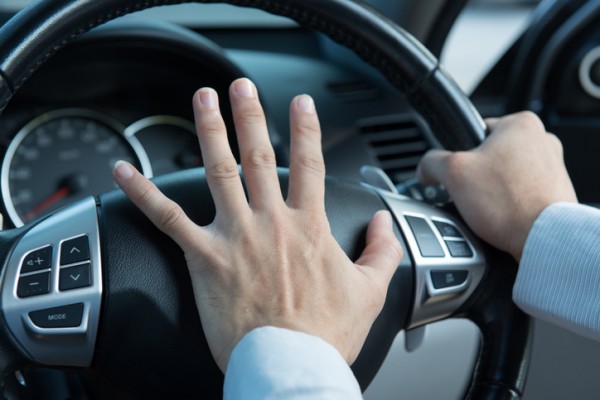
Station Sergeant Boorman believes Canberra motorists are used to travelling everywhere quickly and get frustrated if they are slightly inconvenienced.
However, Station Sergeant doesn’t think Canberra is any worse than other places when it came to ‘hoons’.
“I wouldn’t say in Canberra that we have a hoon culture or a particular road rage culture,” he said.
“Unfortunately there is a certain idiot element in any community and especially when it comes to driving cars.”
Driving a two-tonne weapon
Station Sergeant Boorman said that some drivers forget when they get in a car that “nine times out of 10 you’re driving a two-tonne weapon basically”.
“I think some drivers have a real disconnect with reality sometimes when they are driving cars because they don’t stop to think what the reality will be if they travel at an excessive speed and all of a sudden they have to come to a sudden stop,” he said.
Road rage is common and often seen by children
One of the most recent studies on road rage applying to the ACT reveals that it is not only common here but it is also frequently witnessed by children.
A survey of 1,300 people in NSW and the ACT conducted by the NRMA in June 2015 found that over 70 per cent of motorists had been exposed to road rage in the previous 12 months and that almost one-quarter (22 per cent) of incidents occurred when children under the age of 15 were present.
The survey also found that almost one-in-five (19 per cent) of motorists admitted to committing road rage.
NRMA spokesman Peter Khoury said no form of road rage was acceptable, especially when there were children present.
“It is frightening how quickly a moment of road rage can escalate into an impulse action that ruins lives, or worse, takes them away,” Mr Khoury said.
“This NRMA research serves as a timely reminder that it’s far better to take a deep breath and count to 10, rather than lose control behind the wheel.
“The NRMA is also concerned about the fact that so many cases of road rage occur when children are in the car.
“Aside from the obvious distress this could cause them, when the perpetrator is behind the wheel of the car they are in it also sets a terrible example.”
The personality traits fuelling road rage
A 2014 study by then Australian National University researchers Vanessa Beanland and Martin Sellbom looked at some of the personality traits that can fuel road rage – including the traits of people who engage in road rage and the traits of those whose driving errors may unintentionally spark road rage.
“Not surprisingly, deliberate driving violations were best predicted by the traits of impulsivity, irresponsibility, risk-taking and hostility, whereas tendencies towards experiencing negative emotions – such as anxiety, brooding and emotional instability – were the strongest predictors of attentional lapses and driving mistakes,” Ms Beanland and Mr Sellbom wrote in an article about their findings, first published in The Conversation.
Young male drivers the most aggressive
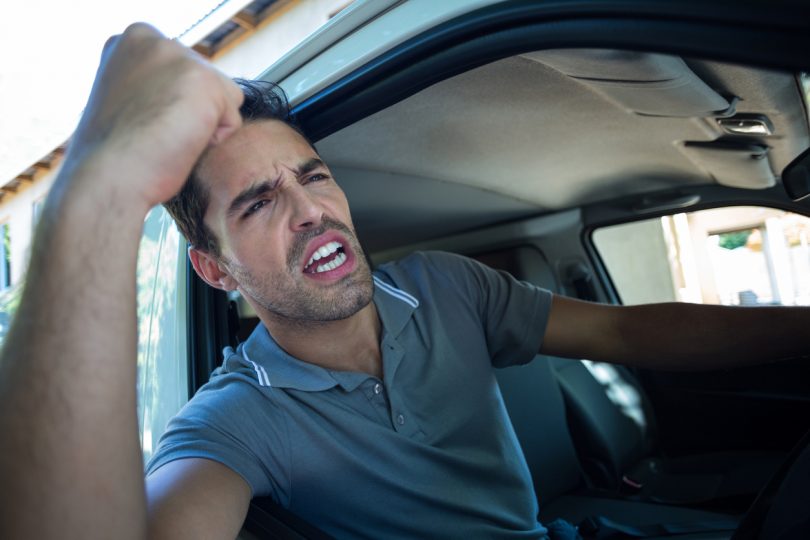
Younger male drivers aged between 22 and 39 are the most aggressive on our roads.
The study found that 36 per cent of male drivers in this age group reported having chased another driver when angry at least once.
“Aggressive driving was associated with drink-driving, speeding, and the use of a hand-held phone, suggesting it may be part of a larger suite of problem behaviours,” the report said.
The report found that aggressive driving was prevalent in Australia and that there was an association between this aggression and being involved in crashes, with 96 per cent of drivers involved in a crash also reporting aggressive behaviour.
Do you think road rage is getting worse on Canberra’s roads? Is Canberra’s culture fuelling this? Let us know about your experiences and thoughts in the comments below.












